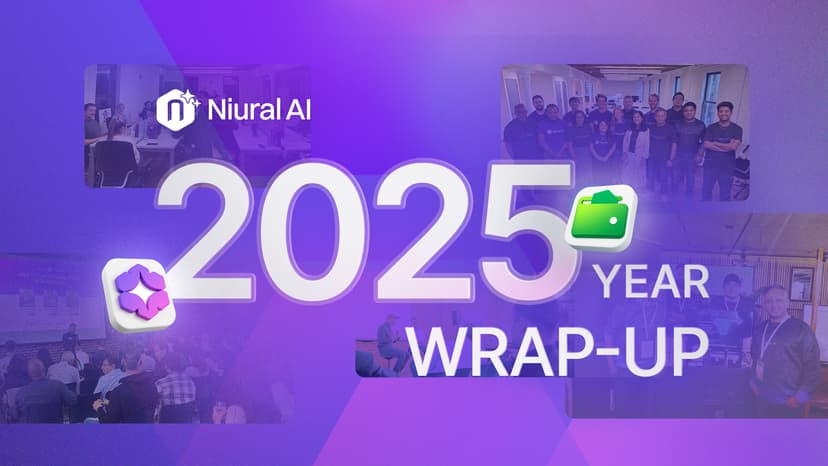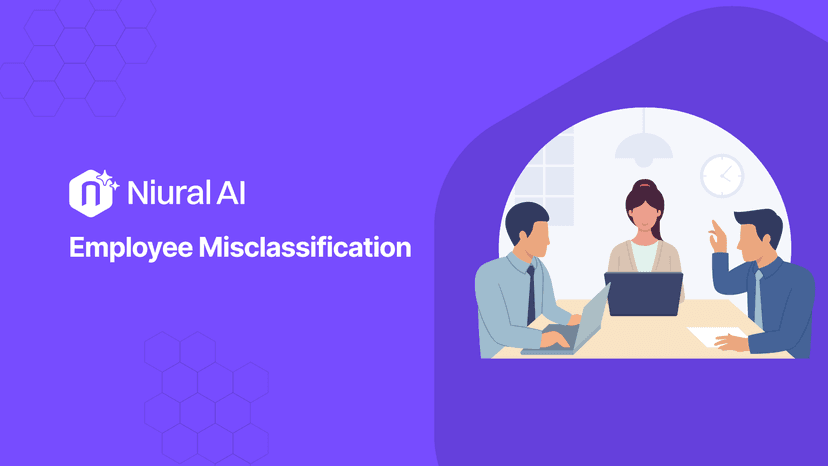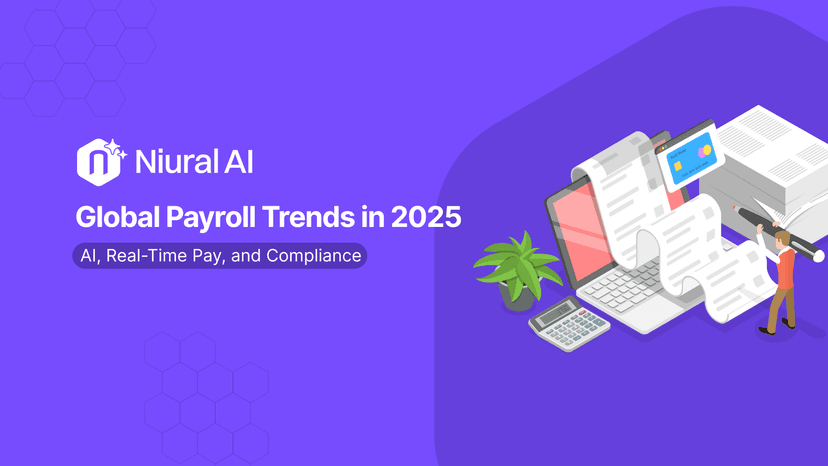Executive Summary
Payroll has moved from a back-office task to a boardroom priority. In today’s high-growth, globally distributed business environment, payroll automation is not only about paying people; it is about trust, compliance, and strategic resilience. As we mark National Payroll Week, this article explores why payroll automation has become indispensable, how Niural powers compliance by default, and why executives across finance, operations, and HR see it as a cornerstone of scale.
Find out more about our National Payroll Week Offer. Book a demo.
Payroll, Growth, and National Payroll Week
Every September, National Payroll Week shines a spotlight on the professionals who keep businesses and economies running: those who ensure employees are paid accurately and on time. While payroll was once seen as a back-office necessity, today it is far more than a routine transaction. For growing companies, payroll has become a strategic infrastructure critical to financial resilience, compliance assurance, and global expansion.
The shift toward distributed teams and international hiring means payroll is now intertwined with tax law, cross-border compliance, and employee experience. Manual processes can no longer keep up. Automation is the enabler of compliant, confident growth, removing the administrative burden, reducing risk, and creating space for leaders to focus on strategy.
That’s where Niural comes in. As an AI-native payroll and compliance platform, Niural makes complex payroll simple, whether a business is operating across U.S. states or hiring talent in 150+ countries.
Why Payroll Is Now a Boardroom Issue
The days when payroll could be delegated solely to back-office staff are gone. Several forces have elevated payroll to a boardroom concern:
- Global complexity: Remote work and international hiring mean payroll is subject to dozens of tax codes, labor laws, and social contribution schemes. Each jurisdiction carries its own filing schedules, compliance standards, and penalties for mistakes.
- Rising compliance risk: Contractor misclassification alone can trigger lawsuits, audits, and reputational damage. Fines for misfilings can reach millions. The stakes are higher than ever. Consider the case of a Virginia healthcare staffing firm that misclassified 1,100 nurses as independent contractors. The penalty? $9.3 million in back pay and fines. For executives, these aren’t abstract risks; they are bottom-line liabilities.
- Leadership friction. CFOs, COOs, and founders report spending excessive time on reconciliation, compliance firefighting, and context switching across fragmented systems. Each manual intervention delays close cycles, distracts from strategic work, and chips away at leadership effectiveness.
What Payroll Automation Really Means
True payroll automation isn’t about moving spreadsheets into the cloud. It means replacing manual tasks with systems that run correctly, every time, without intervention.
- Wage, deduction, and tax calculations are handled automatically, applying the right federal, state, or country-specific rules in real time.
- PTO, timesheets, and expenses flow directly into payroll, eliminating manual reconciliation.
- Year-end forms like W-2s and 1099s are generated and filed on time, without manual effort.
Niural supports these workflows across multiple delivery models:
- PEO (Professional Employer Organization): For small U.S. teams, Niural acts as a co-employer, pooling employees for better benefits and managing payroll, compliance, and HR admin.
- ASO (Administrative Services Only): For larger teams, Niural runs payroll and compliance while companies keep their own benefits.
- EOR (Employer of Record): For international hiring, Niural employs talent abroad legally, ensuring contracts, payroll, and benefits are compliant.
Automation Enables Compliance By Default
Modern executives don’t have time to track every tax code or filing deadline. Niural makes compliance the default state of operations:
- Real-time tax updates: The system automatically incorporates changes to U.S. federal, state, and local tax rates, as well as international social contributions and labor laws.
- Cross-border payroll: Employees and contractors are paid in local currency, with filings and remittances handled in each jurisdiction.
- Classification safeguards: Built-in checks flag potential misclassification risks before they become lawsuits.
- AI SuperAgent: Niural’s AI SuperAgent, EMMA, actively scans payroll data, catching anomalies or errors and alerting teams before payroll runs.
Instead of reacting to compliance problems, leaders can trust that their payroll is already correct, already filed, and already up to date.
Benefits for Executive Teams

Payroll is no longer just a back-office function; it's a strategic force in the boardroom. (Source: Pexels)
Executives often ask: beyond compliance, what does automation tangibly deliver? The answer is measurable impact across leadership priorities:
- Reduced risk exposure: By minimizing human error and embedding compliance rules directly into workflows, Niural reduces exposure to audits, penalties, and lawsuits, cutting payroll errors by up to 90%.
- Faster financial close cycles: Integrated payroll compliance, expenses, and time tools remove reconciliation bottlenecks. Niural customers report closing books in half the time, saving 60+ hours monthly that would otherwise be lost to manual reconciliation.
- Improved scalability: As companies add headcount, open new entities, or onboard contractors, Niural scales effortlessly, supporting rapid expansion while reducing costs.
- Increased operational visibility: Centralized dashboards provide real-time insights into workforce costs, liabilities, and compliance risks, enabling executives to make faster, more confident decisions.
- Lower administrative overhead. Manual entry, double-checking, and spreadsheet gymnastics are eliminated, freeing leadership time for strategy and innovation.
- Better employee experience. Employees are paid on time, benefits are accurate, and onboarding/offboarding runs smoothly, building trust and retention at scale.
Apply for 3 Months FREE US PEO. Book a demo to learn more.
Success Story: From Manual Burden to Automated Confidence
The shift from manual payroll to automated compliance isn’t theoretical; it’s been proven in companies scaling under pressure.
Echowin, an AI-powered Receptionist and Agent Builder Platform, struggled with manual payroll and compliance blind spots while scaling rapidly. Niural automated their payroll across jurisdictions, ensuring accurate filings and compliance at every step. The results were transformative: 35% cost savings on benefits, 80% reduction in vendor management time, and a dramatic drop in payroll errors. Leadership regained strategic focus instead of being trapped in admin cycles.
Slingshot AI, another high-growth technology company, faced the challenge of managing payroll and compliance for distributed teams. By consolidating onto Niural, they eliminated manual reconciliation and achieved: 40% reduction in benefits costs through better plan options, 75% faster global employee onboarding, and 80% reduction in payroll processing time. Their leadership team reported regaining 60+ hours monthly, time that was reinvested in strategic growth.
In both cases, the outcome was the same: less time firefighting, more time leading.
Implementation: What Change Looks Like
Executives often hesitate at the thought of replacing their payroll system. Niural anticipates and addresses those concerns:
- “We already have a payroll system.” Niural integrates with existing tools, filling the compliance and automation gaps legacy systems leave behind.
- “Migration sounds painful.” Guided onboarding includes entity setup, data import, and parallel runs, so teams see side-by-side accuracy before going live.
- “My team will resist the change.” The platform is intuitive, requires minimal training, and consolidates HR workflows into a single, user-friendly dashboard.
- “What if compliance laws change again?” Niural updates automatically, federal, state, and global laws, so payroll stays compliant without manual intervention.
As National Payroll Week reminds us, payroll is the foundation of business trust and economic stability. For modern executives, it’s also a lens into compliance health, workforce efficiency, and strategic readiness.
Now is the time to audit your own workflows:
- Where are manual processes slowing you down?
- Where are compliance risks left to chance?
- Where could automation free leadership time for strategy?
If gaps exist, Niural can help close them. Book a demo to see how payroll automation and compliance can power your next stage of growth.

Payroll isn't just a process; it's a strategic asset. Outdated systems turn it into a liability. (Source: Pexels)
Payroll Is No Longer a Back-Office Function
Payroll is no longer a routine task to be delegated; it is a strategic function that safeguards compliance, strengthens employee trust, and accelerates scale. Automation transforms it from an operational burden into a leadership asset.
During National Payroll Week, we celebrate the professionals who manage this complexity. For executives, it’s also a reminder: the future of payroll is automated, compliant, and central to growth. With Niural Payroll, that future is available today.
Book a demo to discover how Niural can optimize your payroll operations.



